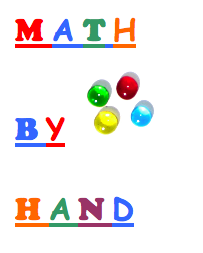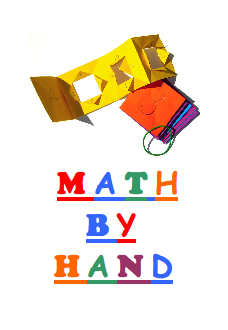 Cross-curricular integration is valuable with all subjects, but is especially important with math and language arts. Rhythmic recitation will enhance your homeschool math curriculum in many ways. Most importantly, the rhythmic element, essential to success in math, is strengthened by daily recitation. Classic poetry, songs, limericks. and especially jump rope and clapping verses are a great combination with math facts memorization.
Cross-curricular integration is valuable with all subjects, but is especially important with math and language arts. Rhythmic recitation will enhance your homeschool math curriculum in many ways. Most importantly, the rhythmic element, essential to success in math, is strengthened by daily recitation. Classic poetry, songs, limericks. and especially jump rope and clapping verses are a great combination with math facts memorization.
In the early grades, as skip counting is used for learning beginning times tables, you will find that a number of well-known songs and rhymes can be used as a perfect match. Holiday songs are a great example. Take for example, skip counting 2s to “Jingle Bells.”
Jingle bells, jingle bells, jingle all the way,
O, what fun it is to ride in a one-horse open sleigh.
Jin gle bells, jin gle bells, jin gle all the way,
2 4 6 8 10 and 2 times 6 is 12
O, what fun it is to ride in a one horse o pen sleigh.
14 16 18 20 22 24
It’s a good idea to accompany both the singing and the skip counting with movement, such as clapping or stepping in rhythm. Match the numbers to the words carefully, using their respective number of syllables correctly so they synch perfectly. Many familiar songs and verses can be used as helpful teaching aids that will greatly enhance your homeschool math curriculum!
As the higher tables are learned, clapping verses can be used as a fun lead in. A variety of clapping patterns (find some online or at the library) can be used with the verses and then as an accompaniment to skip counting the higher times tables. For example, Miss Mary Mack can be a lead in to the 6s.
Miss Mary Mack Mack Mack
All dressed in black, black, black
With tiny buttons, buttons, buttons,
All down her back, back back.
The rhythm of the numbers will find its own way of blending with the clapping rhythm. For example, with this simple pattern: clap hands together, clap partner’s hands, together, partner’s, etc., a very natural rhythm can be found to coordinate with the 6s (or any of the higher tables).
6 12 18 24 30 36 42 48 54 60 66 72
Daily recitation and/or singing, limericks, tongue twisters, etc. can help with many areas other than math. Memorization and recitation greatly improve speaking and writing skills, while they also provide self-confidence, better articulation, and a love of both the written and spoken word.
Make space in your homeschool day for recitation and singing, using the NCTE (the National
Standards for English) or your state’s language arts standards to document, assess, and apply the standards to these forms of literature as they correlate to math. Start the day with a math review that includes songs and poetry, and interweave rhythmic verses with all your homeschool math lessons. Many simple pleasures like these have been lost due to our hurried, modern lifestyles.
Your homeschool curriculum can provide the perfect antidote to this as you find and use lots of lively material while having some good, old-fashioned fun with it! You and your children can build stronger family and community ties while improving skills in many areas and on multiple levels. Add these tongue twisters and limericks to your homeschool curriculum, just for the fun of it. Find many more online or at your library!
Three free throws.
A box of biscuits, a box of mixed biscuits.
Six thick thistle sticks, six thick thistles stick.
Tim, the thin twin tinsmith.
Lovely lemon linament.
Flee from fog to fight flu fast.
A mouse in her room woke Miss Dowd.
She was frightened, it must be allowed,
Soon a happy thought hit her
To scare off the critter
She sat up in bed and meowed.
A funny young fellow named Perkins
Was terribly fond of small gherkins.
One day after tea,
He ate ninety-three
And pickled his internal workings.
First and foremost, please have fun with your homeschool math curriculum! It will pay many dividends, not the least of which is a love of math and a lifelong love of learning. Remember too, that happy students make better math students.











